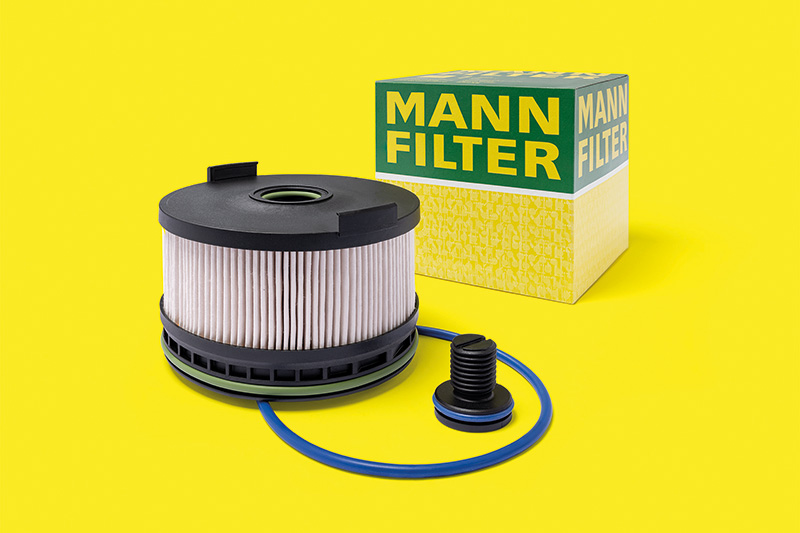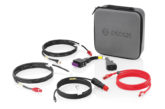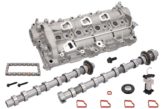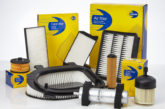
MANN-Filter offers workshops a solution for replacing a filter in a vehicle which is compatible with synthetic fuels.
Climate change is one of the biggest dangers facing mankind and requires urgent action. In 2018, road traffic was responsible for around 18% of global emissions of climate-damaging CO2. According to forecasts by the SMMT, BEVs (Battery Electric Vehicles) will still only account for around 25% of the market. To meet the climate goals of the Paris Agreement, CO2 emissions from passenger car traffic need to be significantly reduced as well. This is where synthetic fuels can play a role. Synthetic fuels can be produced sustainably from biomass – like straw – or organic waste such as used vegetable oil. Electrofuels or e-fuels are synthetic fuels produced using renewable electricity from water and carbon dioxide, for example. Synthetic fuels allow greenhouse gas-neutral operation of conventional gasoline and diesel engines.
Compatible filters
The MANN-FILTER brand of the global filtration specialist MANN+HUMMEL already offers various fuel filters for passenger cars that are compatible with synthetic fuels. Dr. Björn Schmid, Director of Material Development at the firm, explains: “synthetic fuels can be aggressive to some types of elastomer seals and can leach plasticisers from the fuel filter sealing ring. As a result, a seal can lose up to 10% of its volume. In the worst case, this can even cause fuel to flow out and the filter to come loose while driving.”
The seal materials in MANN-FILTER fuel filters for synthetic fuels according to DIN EN 15940 have been tested, are suited for the application, and have the relevant OE approvals. They ensure a permanent hold and a complete seal of the filter.
Efficient filtration
The company has already started series production of these fuel filters for various vehicle manufacturers. In the independent automotive aftermarket, for example, the PU 11 001 z Kit is available in original equipment quality for the Mercedes-Benz C-, E-, and S-Class. This filter, which features an encapsulated mixed fiberglass layer, achieves a filtration efficiency of more than 99.7% down to particles measuring four micrometres (in accordance with ISO 19438). For comparison: these particles are up to 18 times smaller than the width of a human hair. The PU 11 001 z thus stops 997 of 1,000 streaming particles. This is just one of the filters for synthetic fuels, and the range is constantly being expanded.
“The mobility of the future will certainly consist of a mix of different drive technologies, and liquid fuels will be required for a long time, such for passenger car fleets. Here, synthetic fuels can make an additional contribution to effective climate protection in transport,” says Schmid.









